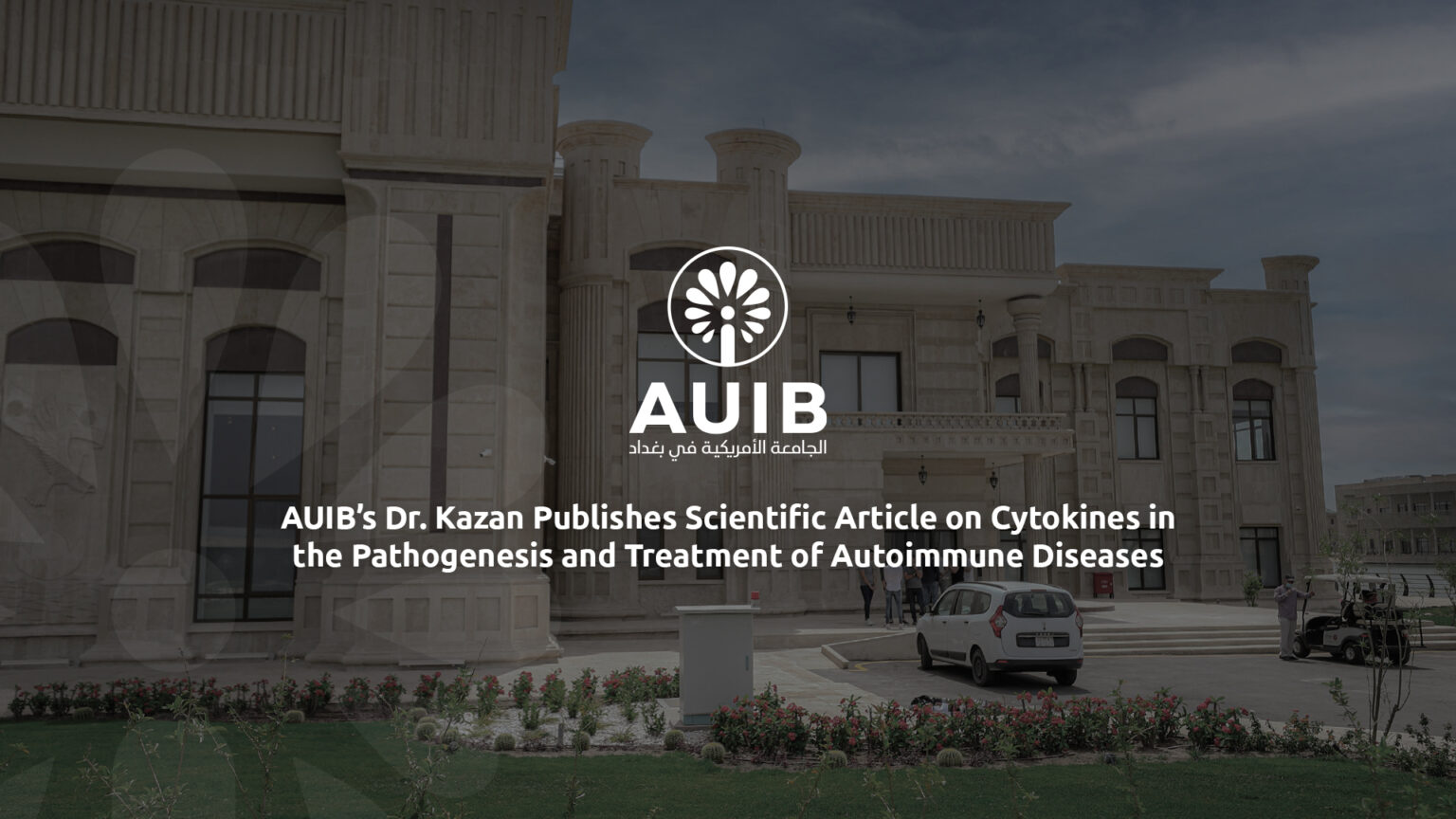The scientific research project on the disorders of the immune system, inflammations, and cancers on which researchers from the American University of Iraq-Baghdad (AUIB), the Free University of Brussels, Mohammed First University of Oujda in Morocco, and the Lebanese University are working cooperatively, has yielded, up till the present moment, 13 scientific articles in the last two years. The last of these was an article published by Springer’s Q1-categorized scientific journal, “Inflammopharmacology,” under the title, “Targeting the Double-Edged Sword: Cytokines in the Pathogenesis and Treatment of Autoimmune Diseases,” the Senior Author and Corresponding Author of which is Associate Professor of Biology at AUIB, Dr. Mohammad Fayyad Kazan.
The research focuses on autoimmune diseases, which are increasing globally, such as rheumatoid arthritis, hepatitis, skin diseases, and certain neurological disorders. These conditions arise when the immune system begins attacking the body and its organs instead of defending it against harmful external agents, explains Dr. Kazan. He points out that the causes of such diseases vary, ranging from certain genetic mutations to exposure to various pollutants, in addition to psychological stress and vitamin deficiencies. “The first step toward treatment is understanding the cause of these diseases. The study provides a comprehensive explanation of the role of cytokines as the primary cause of such conditions,” says the researcher, explaining that “cytokines act as the communication medium between the immune system and the body’s organs, and (their disfunction) leads to failure or destruction of internal organs.” The scientific article describes how such processes occur, the factors that trigger them, and the latest in treatments—particularly targeted therapies that specifically aim at dysfunctional cytokines to block their activity and prevent disease progression. This stands in contrast to non-targeted treatments, which can have negative side effects on the body as a whole, points out Dr. Kazan.
The importance of this research lies in its relevance to various segments of the scientific community, starting with students and researchers in the field of diseases and immunology, “because it updates their understanding of how these diseases develop,” and it is also valuable to doctors and medical practitioners, as it sheds light on the latest in treatments, says Dr. Kazan. Furthermore, publishing the article in a top-tier international scientific journal (Q1) specialized in the subjects covered by the research means that expert reviewers in the field have critiqued the article and found it to offer a serious contribution to the published literature on the topic, confirming that it is “comprehensive, thorough, and delves into the smallest of details,” adds Dr. Kazan.
